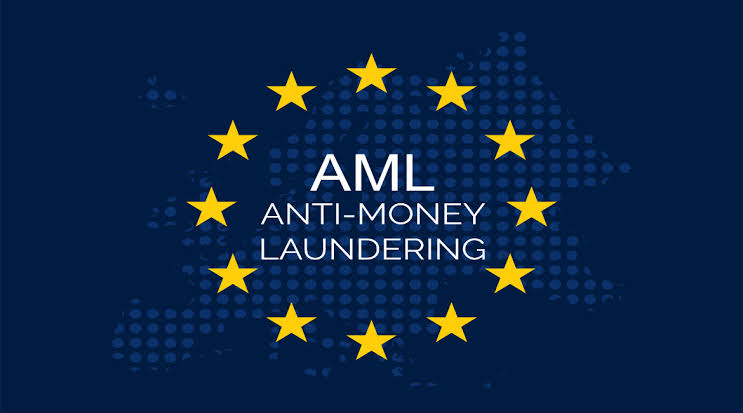AML compliance is inevitable for businesses in the future. 2019 changed the facet of the global regulatory framework.
Many national and international regulatory authorities made AML compliance laws more rigid while increasing the scope of their AML and Counter Financial Terrorism (CFT) laws.
Businesses have no option but to perform AML screening on their customers coming from every corner of the world.
Update your AML Compliance Policy

First of all, businesses that don’t practice AML compliance should opt for compliance as it is no more undeniable.
Those were old days when only the financial sector was liable for AML compliance, nowadays AML compliance is important for non-financial businesses aswell.
Even non-profit organizations are liable to perform AML screening on their donors and other stakeholders. So make AML compliance a necessary part of your 2020 strategy.
The businesses already practicing AML compliance need to update their AML compliance strategy for 2020. Sticking to the old policies and practices will be outdated with regard to amendments that were introduced in AML regulations in 2019.
FATF recommended the legal sector, art, and precious metal dealers, virtual assets businesses to practice AML and CFT compliance just like the financial sector. So it means theses businesses will have to practice AML verification in part of enhanced due diligence.
Also, the European Union (EU) introduced the fifth AML directive, which tightened the reins on the anonymous prepaid credit cards.
Now the prepaid credit card providers need to practice due diligence on their customer if the customer will make a remote transaction above EUR 50 and a deposit or transaction above EUR 150.
Previously this identity verification threshold was EUR 250. The reporting entities are required to be fully compliant with this law by January 2020. So, prepaid card providers have to practice AML compliance or else business closure and imprisonment along with monetary fines will be imposed on non-compliant businesses.
Also, the EU and the U.S increased the scope of their AML/CFT regulations. The businesses originated from the EEA states are now required to practice the EU laws in non-EEA states aswell.
Also, the U.S treasury increased the scope of its CFT practices. They’ll directly practice scrutiny on the international financial institutions affiliated to any of the terrorist activity in the U.S.
So, the international financial institutions need to practice rigid AML scrutiny on their customers to eliminate the chances of being exploited by terrorist financiers.
Opt for digital AML screening solutions to practice global compliance
The risk of financial criminals is coming from every corner of the world. You never know if one of your customers is terrorist financiers. So it is always a good practice to act proactively and practice AML screening on your customers.
Digital AML screening solutions are feasible to practice global AML screening on your customers. Such solutions use Artificial Intelligence (AI) to collect and screen the identity credentials of a customer.
AML screening service providers have in-house databases of global sanction lists, watchlists, PEP lists, etc. So your customers are identified against global watchlists. The person from any corner of the earth can be verified in real-time within 30-60 seconds.
Developing such in-house solutions is not feasible because it requires hefty financial and technical resources. On the other hand, an outsourced AML screening solution is cost and time-effective.
A single API integration will help you achieve global risk cover against identity thieves, money launderers and cyber criminals.
To wrap up, AML compliance is inevitable for businesses in 2020. And digital AML screening is the futuristic approach to effective AML screening of your customers.
How AMLD6 is central to AML Compliance
Rules such as the Payment Services Directive (PSD2) and Anti Money laundering Directive (AMLD) by the EU have laid out rules for banks and institutions undergoing digital transformation.
FinTech companies are required to follow strict regulations as part of their compliance programs when it comes to critical user data handling.
The 6th AML Directive of the EU will be published and adopted in the EU’s Official by December 2020, whereby member states will be required to introduce amendments in the directive as national law.
AMLD6 criminalizes money laundering and seeks to limit criminal activity, which is defined as including organized crimes, terrorism, corruption, arms trade, counterfeiting money, and tax evasion.
The EU is strict in penalizing both the country of origin of the criminal as well as the country in which the crime was committed. Money laundering is also defined specifically to include activities that have the purpose of concealing such transactions.
AMLD6 presents a harmonized framework for the elimination of money laundering and strengthens existing norms.
The directive specifies requirements regarding information records and data processing, with special emphasis on data privacy and the extended use of personal data.
Harsh regulatory penalties have been rolled out as part of the directive, with criminal liability being extended to legal professionals such as partnerships and companies.
Businesses that facilitate money laundering or use a legal cover for black money will also be exposed.
#1. AML Verification Solutions
Since FinTech has driven new crime trends, the solution is inevitably in the technology itself. AI-powered solutions screen large amounts of data with high precision, in real time.
This ensures that any vetting of customers and businesses can be done at source, saving large amounts of time and resources for concerned authorities.
Screening standards are maintained to identify high-risk bearing clients, making onboarding faster and free of crime. FATF, UN, HMT, and Interpol all makeup large databases that make the screening process more efficient and accessible.
A combination of human and artificial intelligence is employed to ensure that no amount of technological spoofing can damage an ongoing AML screening process or reduce the credibility of verified sources.
#2. AML Verification Solutions
Since FinTech has driven new crime trends, the solution is inevitably in the technology itself. AI-powered solutions screen large amounts of data with high precision, in real-time.
This ensures that any vetting of customers and businesses can be done at the source, saving large amounts of time and resources for concerned authorities.
Screening standards are maintained to identify high-risk bearing clients, making onboarding faster and free of crime. FATF, UN, HMT, and Interpol all makeup large databases that make the screening process more efficient and accessible.
A combination of human and artificial intelligence is employed to ensure that no amount of technological spoofing can damage an ongoing AML screening process or reduce the credibility of verified sources.
Author Bio: Kevin Martez















